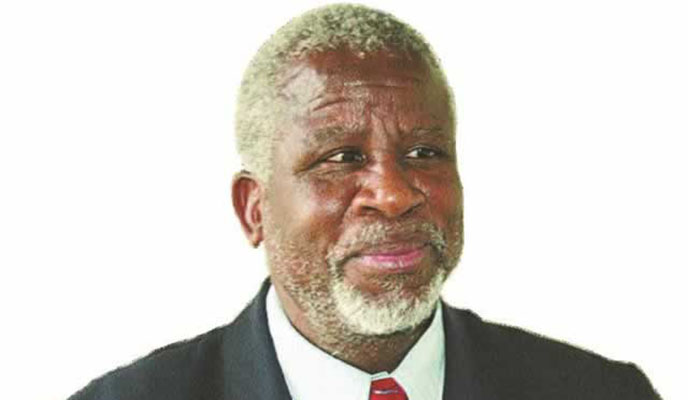
THE Khumalos should trace their ancestry back to South Africa and identify King Lobengula’s successor as a collective lot not individual houses, prominent historian, Phathisa Nyathi has urged.
BY MTHANDAZO NYONI
There have been misunderstandings over who should become Lobengula’s successor, with individual Khumalo households seconding different names for the throne as efforts to resuscitate the Ndebele kingdom gather momentum.
On Monday, 32-year-old Bulelani Colin Lobengula Khumalo was announced as the heir apparent, a few weeks after Stanley Raphael Khumalo declared himself the new King Mzilikazi II.
But others in the Khumalo clan have distanced themselves from Bulelani, saying they have identified someone else.
“There is no confusion whatsoever. To me it’s very normal that there is contestation. Even Lobengula got his kingship through contestation. But ultimately, one successor is going to ascend to the throne and this is what is going to happen,” Nyathi told Southern Eye.
“There is no family that is mandated to choose an heir. The Khumalos (collectively) are the ones who are supposed to sit down and choose a successor. There should be adjudicators following customs and traditions. Not one house but all of them”.
“If it becomes one house there would be chaos and fighting. Chiefs have no role in choosing the successor. They should just accept the name they would have been given,” he said.
- Chamisa under fire over US$120K donation
- Mavhunga puts DeMbare into Chibuku quarterfinals
- Pension funds bet on Cabora Bassa oilfields
- Councils defy govt fire tender directive
Keep Reading
Nyathi said when the Rhodesian settlers destroyed the Ndebele state and killed the former King Lobengula in 1893, the British South Africa Company administration made it clear that they were not going to allow anyone to become king of the Ndebele people again.
They then identified Lobengula’s sons – who were eligible to claim the kingship – and sent them to Cape Town in South Africa where they were to be educated in Western culture and forget about their own kingship.
These were Njube, Mpezeni and Nguboyenja. Sidojiwa, the last born, could not go to Cape Town because he was still too young.
Nyathi said the Rhodesians frustrated Njube, the eldest brother who was supposed to succeed his father and he later died in 1910.
He said Njube, however, left behind two sons, Rhodes and Albert who were eligible to ascend to the Ndebele throne, even though they were born in exile in Cape Town.
Sometime, the two reportedly came back to Rhodesia and settled among their people. Then the Ndebele people wanted Rhodes to become king.
However, upon realising that, the settlers sent Rhodes into exile like his father after forcing him to sign an agreement which said that once he left the country, he would never return.
His brother Albert was not spared either. He was also forced into exile.
Both died in exile and it’s not clear whether they left sons or not, Nyathi said.
“It’s where the Khumalos should start from. They should go to South Africa,” he said.
Historians say Nguboyenja, who was also banished to South Africa, died wretched after suffering a mental breakdown, living the life of a vagabond.
It’s not clear what happened to Sidojiwa. Other sons such as Nyamande and Tshakalisa, were born before Lobengula had become king and were not eligible to become king, according to tradition.











